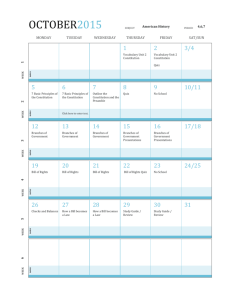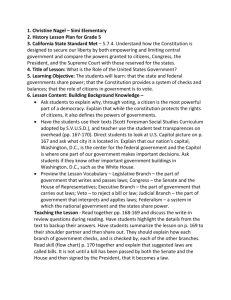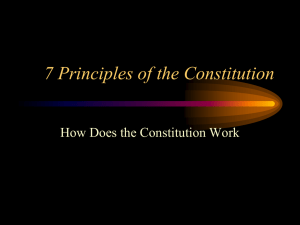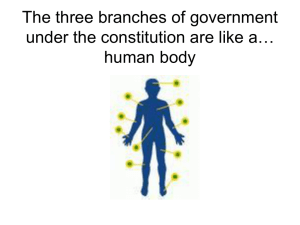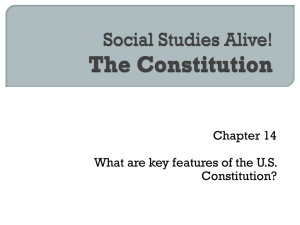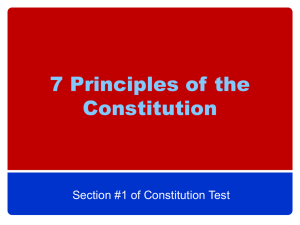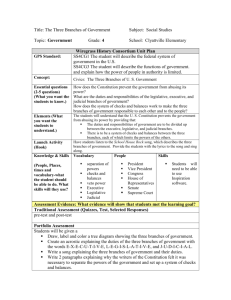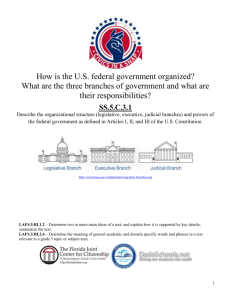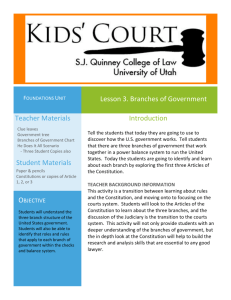Constitution 7 principles
advertisement
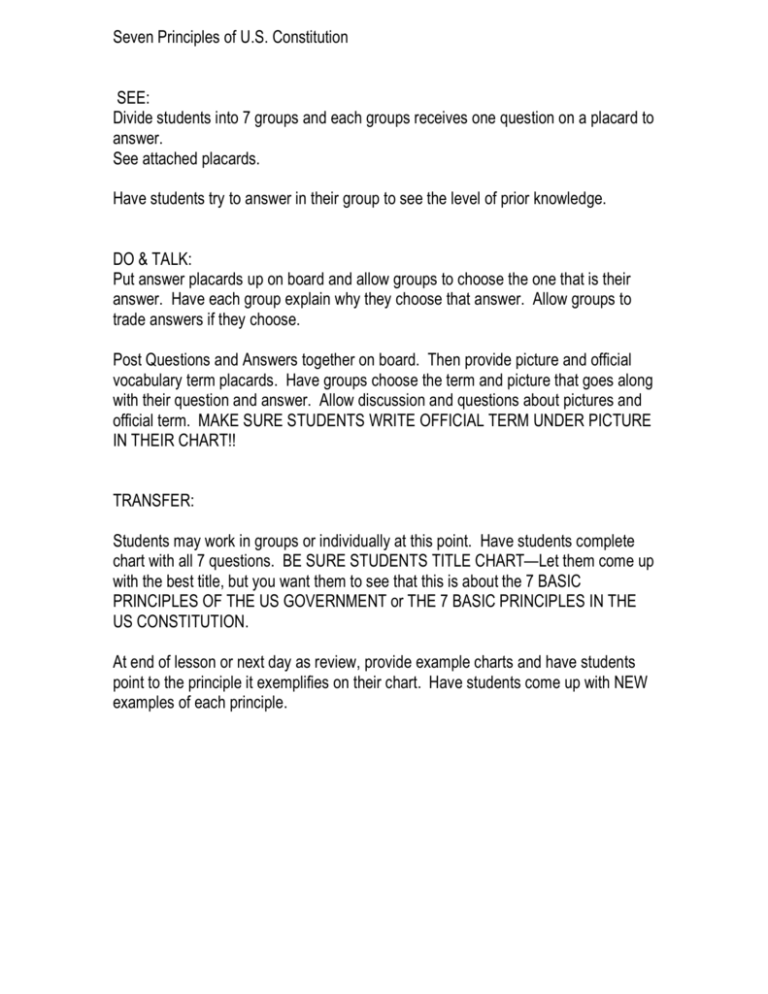
Seven Principles of U.S. Constitution SEE: Divide students into 7 groups and each groups receives one question on a placard to answer. See attached placards. Have students try to answer in their group to see the level of prior knowledge. DO & TALK: Put answer placards up on board and allow groups to choose the one that is their answer. Have each group explain why they choose that answer. Allow groups to trade answers if they choose. Post Questions and Answers together on board. Then provide picture and official vocabulary term placards. Have groups choose the term and picture that goes along with their question and answer. Allow discussion and questions about pictures and official term. MAKE SURE STUDENTS WRITE OFFICIAL TERM UNDER PICTURE IN THEIR CHART!! TRANSFER: Students may work in groups or individually at this point. Have students complete chart with all 7 questions. BE SURE STUDENTS TITLE CHART—Let them come up with the best title, but you want them to see that this is about the 7 BASIC PRINCIPLES OF THE US GOVERNMENT or THE 7 BASIC PRINCIPLES IN THE US CONSTITUTION. At end of lesson or next day as review, provide example charts and have students point to the principle it exemplifies on their chart. Have students come up with NEW examples of each principle. Who gives the US government its power? The People PopularSovereignty How do the people of the United States have a voice in government policy and procedures? Which government has more power, the state or national? What are the branches of the US government and what is the purpose of different branches? What sets the guidelines and rules for what the national government can and cannot do? What are personal freedoms and how are they protected? How do the different branches of the US government limit the power of each branch? By voting for representatives Republicanism State and Federal governments share power Executive, Legislative & Judicial The U.S. Constitution Freedom of Speech, religion, etc. Bill of Rights One has power over the other branch-veto, etc. = Federalism Separation of Powers Limited Government Individual Rights Check and Balances Your parents voting for the mayor, governor or president. Kay Bailey Hutchinson is Texas senator in the US Senate. States set taxes on gasoline. The US government sets income tax. The legislature passes laws. The US government can have no powers beyond what are stated in the constitution. You have the right to practice any religion you wish. The president can veto a bill passed by Congress. ANSWER TERM Who gives the US government its power? How do the people of the United States have a voice in government policy and procedures? Which government has more power, the state or national? What are the branches of the US government and what is the purpose of different branches? What sets the guidelines and rules for what the national government can and cannot do? What are personal freedoms and how are they protected? How do the different branches of the US government limit the power of each branch? = EXAMPLE Who gives the US government its power? How do people of the US have a voice in government policy and procedure? Which government has more power, the state or national? What are the branches of US government and why do we have the different branches? What sets the guidelines and rules for what the national government can and cannot do? What are personal freedoms and how they are protected? How do the different branches of the US government limit the power of each branch? The People By voting for representatives State and Federal governments share powersbut since Civil War, Federal has higher authority Executive, Legislative and Judicial To keep one group or person from getting too much power The U.S. Constitution Freedom of Speech, religion, press, etc. Bill of Rights One has power over the other branch Republicanism Popular Sovereignty = Federalism Separation of Powers Limited Government Individual Rights Checks and Balances Your parents voting for mayor, governor or president. Kay Bailey Hutchinson is Texas’ senator in the US Senate. States set taxes on gasoline. The US government set income tax. The legislature passes laws. The US government can have no powers beyond what are stated in the constitution. You have the right to practice any religion you wish. The president can veto a bill that Congress has passed.
